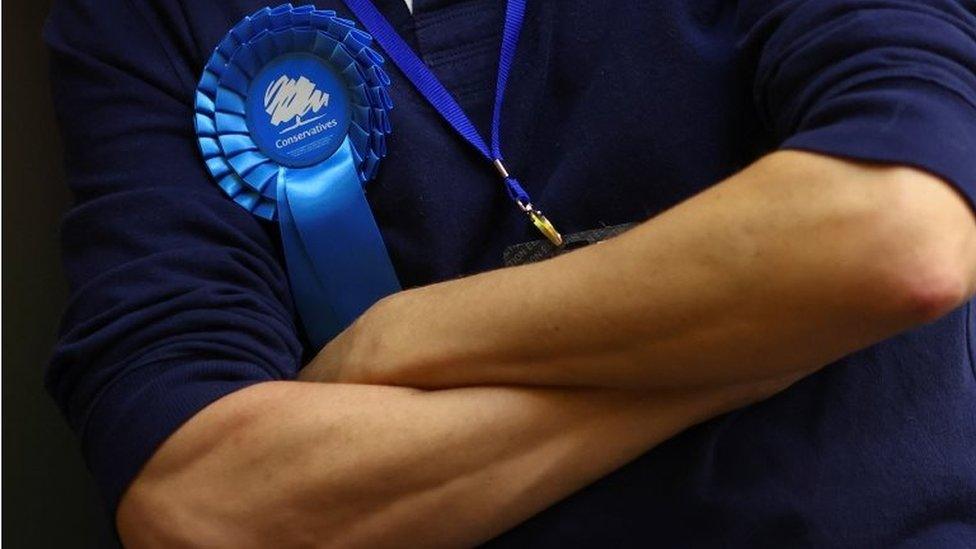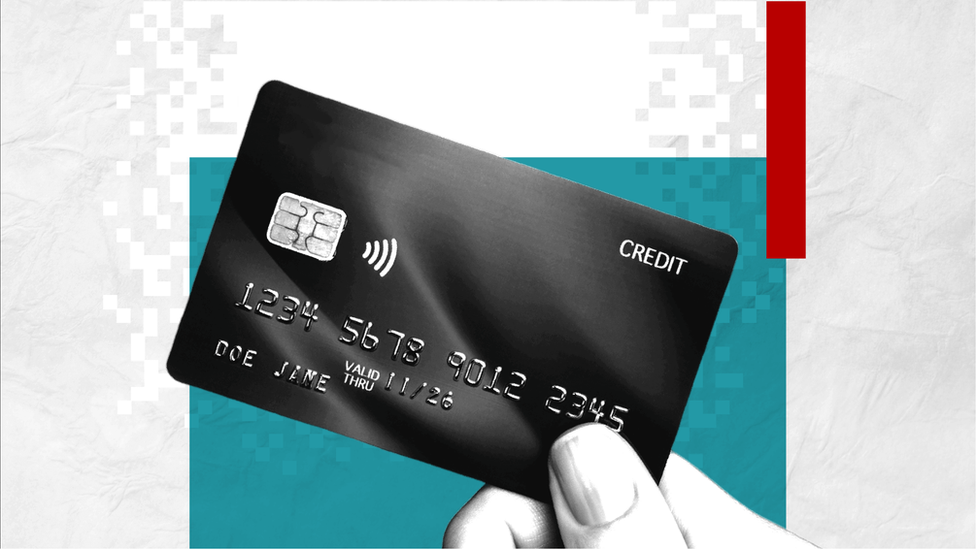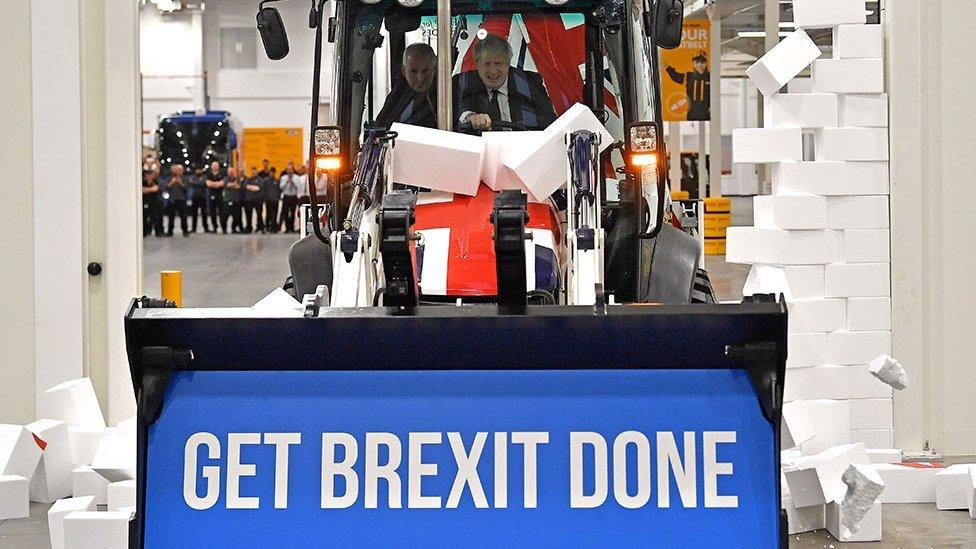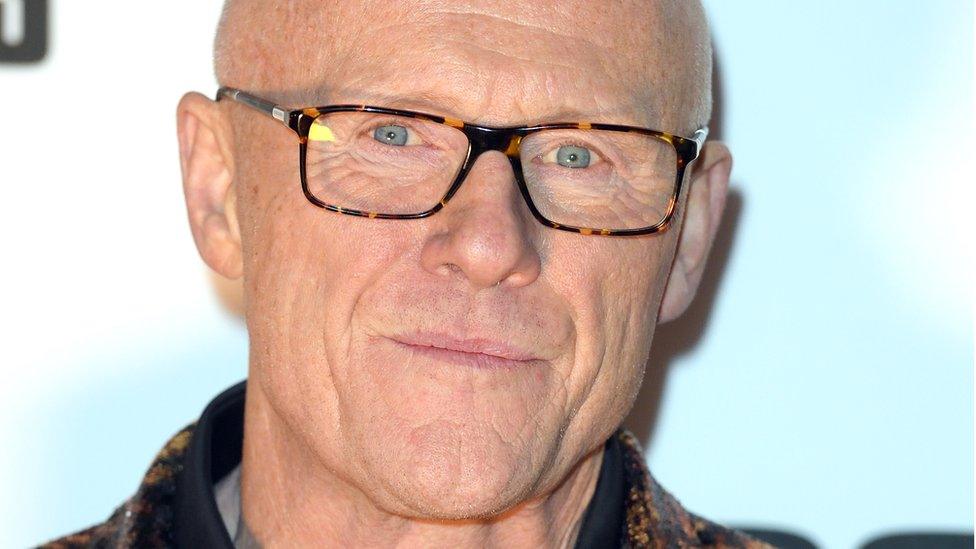Conservative Party faces questions over donation, says Labour
- Published

The Conservative Party has questions to answer about whether a £450,000 donation from its former treasurer complied with UK law, Labour says.
Sir Ehud Sheleg gave the money in 2018.
Labour chair Anneliese Dodds told MPs the donation "appeared to have originated from his father-in-law, Sergei Kopytov, a former senior pro-Kremlin politician in Ukraine".
The source for her allegation was a New York Times story, which Mr Sheleg's lawyers say is untrue and defamatory.
Ms Dodds used Parliamentary privilege, the rule which exempts MPs from libel law, to raise the allegations about Sir Ehud.
A spokesman for Sir Ehud said: "The New York Times' allegations are a fabrication and Ms Dodds has unfortunately been sucked in by the paper's outrageous distortion.
"The facts are that Mr Kopytov, Sir Ehud's father-in-law, is a Ukrainian victim and is no Putin 'ally'. He is currently a refugee in the Czech Republic, having lost his job as a senior civil servant when the Russians annexed Crimea in 2014 and more recently he has had his Crimean assets put on the Russian 'nationalising' list.
"Mr Kopytov has not made a donation to the Conservative Party, whether through Sir Ehud or by any other means. It's completely untrue.
"The whole agenda-driven story is deeply offensive to Sir Ehud and his family, particularly given the unjustified war in Ukraine."
Last year, Barclays Bank filed a suspicious activity report with the National Crime Agency over Sir Ehud's 2018 donation.
Banks are required by law to alert the NCA in this way when they suspect criminality.
'Gift'
Sir Ehud's lawyers say SARs are "by no means infrequent" and not a "demonstration of wrongdoing". In 2020, UK banks issued 432,316 SARs, according to the NCA's financial crime unit's annual report, external.
The SAR issued in relation to the donation "was filed 16 months ago, in relation to transactions that took place four years ago, and our client has not received any enquiries or notification of investigation by any relevant authority," Sir Ehud's lawyers said.
It is against the law for political parties to accept money from individuals who are not on the UK electoral register.
Sir Ehud's lawyers said Mr Kopytov made a cash gift to his daughter, Sir Ehud's wife, in January 2018 and the money was used to repay a loan made to Sir Ehud by his family's trust.
A few weeks later Sir Ehud took out a loan from the family trust and used some of that to make a donation to the Conservative Party, according to his lawyers.
Sir Ehud "categorically rejects any suggestion that Mr Kopytov's gift to his daughter was intended as, or for the purpose of, making a political donation to the Conservative Party," the lawyers said.
Further questions
In a point of order in the House of Commons, Ms Dodds said the Conservative Party had "genuine questions to answer" about the donation, and she raised "additional serious questions" about the former Tory treasurer.
"Did Sir Ehud host a reception with the Russian ambassador to the UK, following the annexation of Crimea?
"Are assets apparently owned by Mr Kopytov like, for example, a Mercedes Benz car, used by individuals involved in the Russian state?
"Did the bank transfer at issue in the New York Times article originate from a Russian bank? Were sanctioned entities involved?
"Exactly what current and former links do the Sheleg/Kopytov family hold with key actors in the Russian state? And finally, has electoral law been broken and relatedly has our national security been compromised?"
Ms Dodds said she had written to Conservative Party chairman Oliver Dowden to demand answers - and asked what "recourse" she had if he declined to respond.
Deputy Speaker Rosie Winterton told Ms Dodds it was a "party matter" and not something the Commons authorities could intervene in.
'Wasting time'
The Conservative Party said it "only accepts donations from permissible sources, namely individuals registered on the UK's electoral roll or UK registered companies".
"Donations are properly and transparently declared to the Electoral Commission, openly published by them and comply fully with the law."
A Conservative Party source accused Ms Dodds of "wasting Parliament's time with party political games".
In response to last week's New York Times story, the Electoral Commission said they were not investigating Sir Ehud and were "not aware of any alerts relating to his financial transactions".
The watchdog said: "If someone makes a donation on behalf of someone else, they are required to inform the party and provide the actual donor's details. "Where there is evidence that a donation from an impermissible source has been accepted, we will consider it in line with our enforcement policy, and consider what action, if any, is appropriate."
From 2019 to 2021, Sir Ehud acted as the Conservative Party's treasurer - a role which involves raising money for the party.
Between 2017 and 2020, the British-Israeli art gallery director donated, external £3.8m to the Conservatives.
Sir Ehud - who was awarded a knighthood by former Prime Minister Theresa May in 2019 - was the second biggest donor to the Conservative Party in the final two days before the 2019 general election.
Related topics
- Published4 October 2021

- Published2 October 2021

- Published23 December 2019
